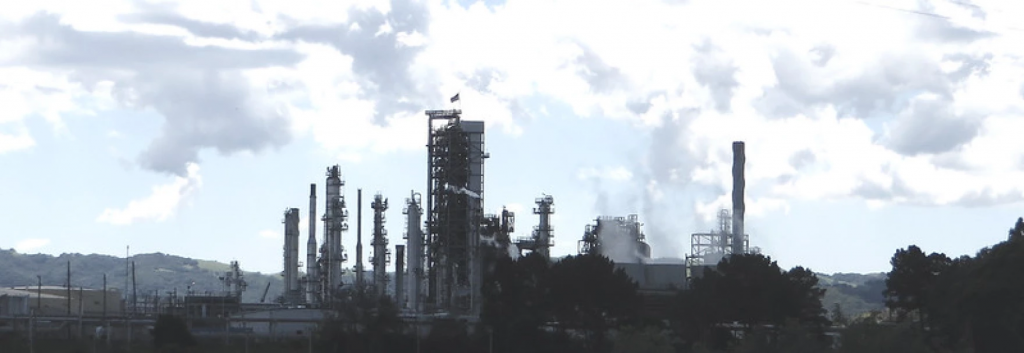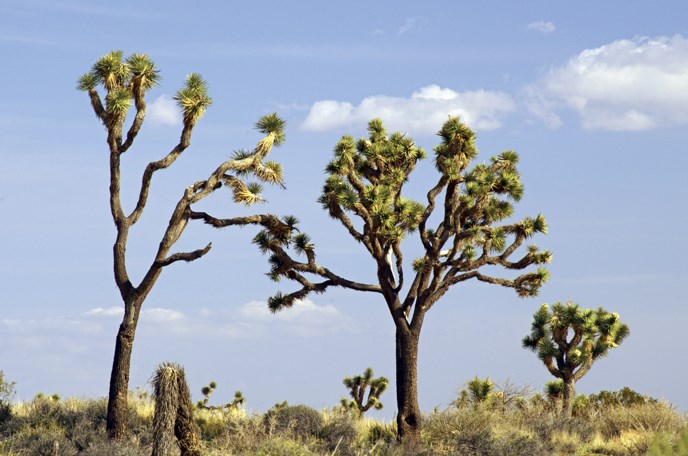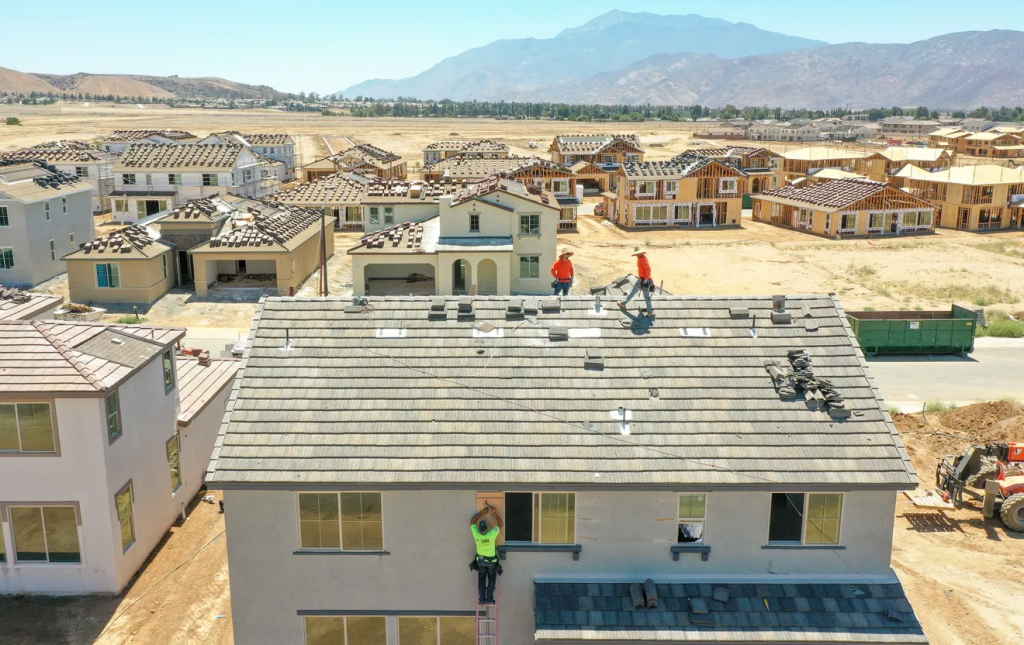
On tonight’s State of the Bay, I’ll talk with Joe Eskenazi, Managing Editor of Mission Local, about the results of the March 5th Election and what they mean for San Francisco.
Then, I’ll interview three experts about whether climate disclosure and emissions requirements will be effective and what the prospects are for divestment from fossil fuels. The panel will include:
- Dave Jones, Director of the Climate Risk Initiative at UC Berkeley’s Center for Law, Energy and the Environment (CLEE)
- Rev. Kirsten Snow Spalding, Vice President of the Ceres Investor Network
- Malin Clark, Partner at Third Economy, a sustainability consulting firm
Finally, we’ll hear about the all-girl robotics team, The Janksters, and their robot Rosa! Joining me will be their coach, Marta Carrillo.
Tune in at 91.7 FM in the San Francisco Bay Area or stream live at 6pm PT. What comments or questions do you have for our guests? Call 866-798-TALK to join the conversation!

I’ll be a guest on KQED Forum this morning at 10am discussing lawsuits against the oil industry and its deceptive practices related to climate change.
Most recently, 18 California children sued the EPA for failing to protect them from climate change. The lawsuit is one of many efforts to hold the fossil fuel industry to account that reporter Dharna Noor highlighted in her series for the Guardian US called “Big Oil Uncovered.” We’ll discuss the strategies oil and gas companies are using to delay or avoid action on climate change — and the people and policies who are taking them to task.
Tune in on KQED in Northern California or stream live at 10am PT!

On tonight’s State of the Bay, we’ll discuss California’s role at the just-concluded United Nations Climate Conference (COP 28) and dig into what the agreement to begin reducing global consumption of fossil fuels might mean for Bay Area refineries. Plus, we’ll take a tour through the WPA murals of Coit Tower.
First, we’ll talk with Assemblymember Rebecca Bauer-Kahan, representing California’s 16th Assembly District in the East Bay, about the role of California and the Bay Area in this year’s COP.
Then, we’ll look at how the agreement reached at COP 28 to begin reducing global consumption of fossil fuels might mean for Bay Area refineries. Joining us will be:
- Ann Alexander, senior attorney with the Natural Resources Defense Council
- Greg Karras, independent consultant, senior scientist for Communities for a Better Environment and author of “Decommissioning California Refineries: Climate and Health Paths in an Oil State.”
Finally, we’ll take a tour through the WPA murals at San Francisco’s Coit Tower with Charlie Goldman.
Tune in at 91.7 FM in the San Francisco Bay Area or stream live at 6pm PT. What comments or questions do you have for our guests? Call 866-798-TALK to join the conversation!

On tonight’s State of the Bay, I’ll be speaking with Ricardo Cano, transportation reporter for the San Francisco Chronicle, about why state regulators have revoked permits for Cruise’s driverless autonomous vehicles. What are the implications for the autonomous vehicle industry here in California and beyond?
We’ll also hear from Los Angeles Times environmental reporter and author Rosanne Xia about her new book “California Against the Sea: Visions for Our Vanishing Coastline.”
And finally, we’ll sit down with Emily Pilloton-Lam, founder and executive director of the Berkeley non-profit Girls Garage.
Tune in at 91.7 FM in the San Francisco Bay Area or stream live at 6pm PT. What comments or questions do you have for our guests? Call 866-798-TALK to join the conversation!

On today’s Your Call One Planet Series, I’ll be guest hosting and talking to University of Pennsylvania renowned climate scientist Dr. Michael Mann, presidential distinguished professor in the Department of Earth and Environmental Science and director of the Penn Center for Science, Sustainability, and the Media.
He will discuss his new book, Our Fragile Moment: How Lessons from Earth’s Past Can Help Us Survive the Climate Crisis. In this sweeping work of science and history, Mann shows us the conditions on Earth that allowed humans not only to exist but to thrive, and how they are imperiled if we veer off course.
Then we’ll discuss Water for Life, a documentary film that tells the story of three Indigenous activists in Central and South America, fighting to protect their ancestral lands and water rights.
The film follows Alberto Curamil, a Mapuche chief in Chile; Francisco Pineda, a corn-grower in El Salvador; and the late Berta Cáceres, of the Lenca in Honduras, as they face jail and murder while leading movements to safeguard their drinking water and irrigation water from multinational corporations and corrupt governments. Joining us will be:
- Will Parrinello, award-winning documentary filmmaker and the director of Water for Life
- Sarah Kass, award-winning storyteller specializing in long- and short-form documentaries and non-fiction television, and producer of Water for Life
Tune in at 91.7 FM in the San Francisco Bay Area or stream live at 10am PT. What comments or questions do you have for our guests? Call 866-798-TALK to join the conversation!

On today’s Your Call, I’ll guest host a discussion of the health hazards of wildfire smoke. Last week, the San Francisco Bay Area experienced its first taste of this year’s fire season with the Air Quality Index numbers soaring into a range deemed unhealthy for the general population.
According to the National Oceanic and Atmospheric Administration (NOAA), wildfires are bigger, more severe, and more common today in the western United States than at any time in the last four decades. The recent fires in Maui that destroyed 80 percent of the seaside town of Lahaina are just the most recent tragic example. In California, nearly half of the state’s largest fires on record occurred in the past five years.
But immediate destruction from wildfires is only part of the picture. Wildfire smoke can have lasting impacts on human health. A new study from Lancet Planet Health found that smoke from the world’s worsening wildfires is now killing 33,510 people every year. It not only exacerbates respiratory illnesses like asthma, but is also linked to increased risk of cancer, heart attacks, and preterm birth.
So what can we do to keep ourselves safe as wildfires rage on? Joining me will be:
- Quinn Redwoods, founder and director of Mask Oakland
- Julie Johnson, journalist, staff writer at San Francisco Chronicle’s climate and environment desk
- Dr. Neeta Thakur, associate professor of pulmonary and critical medicine at UCSF, medical director of the outpatient pulmonary clinic at San Francisco General Hospital, co-director of the Partnerships for Research in Implementation Science for Equity (PRISE) Center.
- Dr. Sheri Weiser, internist and professor of medicine in the HIV, Infectious Diseases and Global Medicine division at UCSF, co-founding director of the University of California Center on Climate Change, Health and Equity
Tune in at 91.7 FM in the San Francisco Bay Area or stream live at 10am PT. What comments or questions do you have for our guests? Call 866-798-TALK to join the conversation!
 It’s a double shot of me on KALW radio today, where I’ll be hosting Your Call at 10am PT and then State of the Bay at 6pm PT for our second edition of our climate special series.
It’s a double shot of me on KALW radio today, where I’ll be hosting Your Call at 10am PT and then State of the Bay at 6pm PT for our second edition of our climate special series.
First, on Your Call’s One Planet Series at 10am PT, we’ll discuss a joint investigation by The Washington Post and The Examination about how the food, beverage and dietary supplement industries are paying dozens of registered influencer dietitians to help sell products and deliver industry-friendly messages on social media platforms. Joining us will be:
- Sasha Chavkin, correspondent for The Examination
- Dr. Caitlin Gilbert, neuroscientist and Well+Being data reporter at The Washington Post
Then at 6pm PT on State of the Bay for our second climate special, you can hear my interview with with California Attorney General Rob Bonta about the state’s lawsuit against big oil for climate damages.
Then, many Bay Area cities have formally declared a climate emergency, but what does this mean, and what should it mean? We’ll discuss what tradeoffs and changes may be needed to address climate change in the Bay Area with:
And finally, we sit down with local educator, organizer, artist and activist, Khafre Jay to learn why he thinks the climate movement needs more Hip Hop.
Tune in at 91.7 FM in the San Francisco Bay Area or stream live at 10am PT for Your Call and then again at 6pm PT for State of the Bay. What comments or questions do you have for our guests? Call 866-798-TALK to join the conversation!

I’ll be double-hosting radio programs today on KALW. First, will California’s iconic Joshua Tree vanish from its namesake national park by the end of this century? I’m guest hosting Your Call’s One Planet Series at 10am PT, and we’ll discuss how climate change and development pressures are endangering Joshua Trees and what the state is doing about it. Joining us will be:
- Brendan Cummings, conservation director of the Center for Biological Diversity and a Joshua tree resident
- Dr. Cameron Barrows, professor Emeritus and Research Ecologist at UC Riverside
Then later in the program we will talk about a campaign by Fossil Free Media targeting oil and gas companies for their role in fueling climate disasters. Jaime Henn will join us, the founder and director of Fossil Free Media, a nonprofit communications lab that supports the movement to break free from fossil fuels.
Then at 6pm PT I’m hosting State of the Bay. You’ll hear my interview with State Senator Scott Wiener, whose bill to decriminalize psychedelics, SB 58, just passed the State legislature last week and is now headed to the Governor’s desk. Will Governor Newsom sign it?
Then I’ll talk to Silicon Valley investor, activist, and tech executive Tom Kemp about his new book, Containing Big Tech: How to Protect Our Civil Rights, Economy and Democracy.
Finally, you’ll hear from one of the San Francisco Dolphin Club members who recently swam across the English Channel, at the age of 75.
Tune in at 91.7 FM in the San Francisco Bay Area or stream live at 10am PT for Your Call and then again at 6pm PT for State of the Bay. What comments or questions do you have for our guests? Call 866-798-TALK to join the conversation!

Tonight on State of the Bay, we’ll discuss the potential Oakland A’s move to Las Vegas with the “Bay Area Sports guy,” Steve Berman of The Athletic. He’ll also share his latest analysis of the Warriors/Kings playoff series, the state of the Giants, and more.
Plus, we’ll talk about a new report on preparing the Bay Area for rising sea levels, with an estimate that it will cost a staggering one hundred and ten billion dollars. We’ll dig into the feasibility of this. Guests will include:
- Dana Brechwald, Assistant Planning Director for Climate Adaptation at the San Francisco Bay Conservation and Development Commission, or, BCDC.
- Adrian Covert, Senior Vice President of Public Policy for the Bay Area Council, or BAC.
Finally, we’ll start our series “Have you met”…where we talk to Bay Area folks that we think you should know. So have you met Chris Chatmon? Find out why you should.
What would you like to ask our guests? Post a comment here, tweet us @StateofBay, send an email to stateofthebay@kalw.org or leave a voicemail at (415) 580-0718.
Tune in tonight at 6pm PT on KALW 91.7 FM in the San Francisco Bay Area or stream live. You can also call 866-798-TALK with questions during the show.

A major new piece of housing and climate legislation was introduced in California this month, and it’s been a long time coming. AB 68 (Ward) finally sets forth a powerful template for where the state should encourage new housing and where it should avoid planning for more, based on climate and environmental hazards. It represents the culmination of a long-sought alliance between major housing advocates like California YIMBY and conservation groups like The Nature Conservancy.
So where should the state build more housing, according to AB 68? It defines those places in the following “climate smart” ways:
- In a high or moderate income area, as defined by state affordable housing tax credit maps, to prioritize more housing in high-opportunity and well-resourced areas and minimize displacement of low-income renters
- Within 1/2 mile of major transit or an area where residents drive below-average distances on a per capita average, in order to reduce overall driving miles in the state
- Within a mile of a cluster of at least six types of locations like restaurants, bars, coffee shops, supermarkets, parks and hardware stores, among others, to ensure rural and exurban infill areas aren’t left out, as well as places without access to transit.
If a housing development is proposed in these areas, the project gets “ministerial” approval (i.e. exempt from environmental review), and a local government cannot limit the development beyond any of the following:
- Setback greater than four feet from any side
- Height limit less than 50 feet
- Maximum lot coverage of less than 60 percent
- Minimum parking requirement
- Floor area ratios (i.e. the building’s total floor area in relation to the size of the lot/parcel, indicating overall density) less than 1.0. to 1.5, depending on criteria met
There are additional requirements to protect existing affordable housing and ensure consistency with SB 375 plans, among others.
And where should planning for denser development in the state be limited? AB 68 describes these “climate risk lands” as within high-severity wildfire and flood zones, or having a sea level rise risk according to the latest science. They also must be not currently zoned for housing or have existing urbanized communities on them.
In these areas, local governments cannot increase existing housing densities or allow subdivisions, and they cannot approve any extension of water or sewer services, unless certain exceptions can be met, such as an approved housing element and a statement of housing necessity, among other conditions.
In short, AB 68 finally provides the much-needed, legislatively endorsed map for where the state should grow and where it should avoid putting more people into harm’s way. If successful, AB 68 will arguably be the single biggest climate bill that the state has passed in over a decade, given the centrality of land use and housing to meeting our climate goals. The fight to pass it will not be easy, but AB 68 has a powerful coalition to support it, along with a well-conceived solution to the state’s urgent and related challenges of climate and housing.


